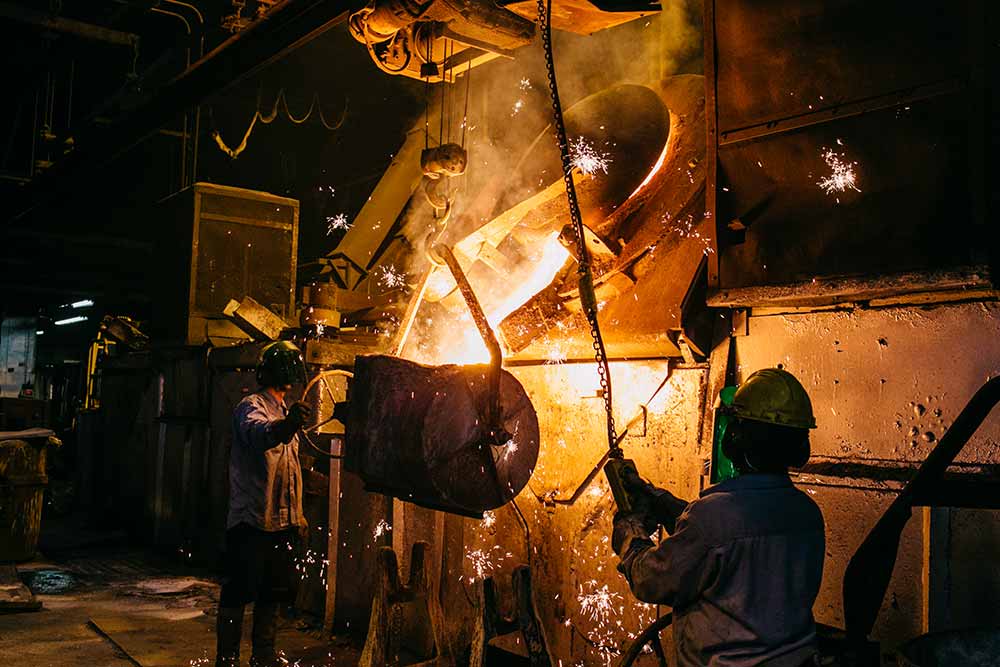The holiday season can really put a squeeze on any production schedule. Such was the case for a global manufacturer of capital equipment who came to the Taylor & Fenn Company seeking sand casting for compressor components. The order was comprised of three sets of large carbon steel pieces—eighteen pieces total—that were between 1,500 and 4,000 pounds each. Under normal circumstances, the scale of the client’s request would be no problem, but they needed each piece to be fully completed before the soon-approaching holidays.
A Troubling Trifecta of Challenges: Time, Tooling, and Difficult Parts
The timing of the order made this a particularly difficult job. In order to meet an already tight deadline, the experts at the Taylor & Fenn Company had to anticipate and prevent any possible cause for delay. Completing the job on time required process changes, tooling changes, and a united effort to expedite every step in the foundry process.
Tight Deadlines Leave Little Room for Mistakes
This order needed to be expedited with high priority. The customer needed the components so they could be delivered to a third-party customer. The compressor manufacturer had a penalty clause in its contract that would bring on steep fines if the order was late. Our entire team had to work together to outline the most efficient ferrous sand casting processes possible and anticipate and avoid potential problems or challenges.
Refining Tooling Patterns Saves Time
Although the tooling was already prepared for use, a history of producing similar parts told our team that a certain area on the component was susceptible to defects. Since there was no time for any rework or repairs, we recommended a change to the pattern and tooling that would eliminate the defect altogether.
All-Over Machining Requirements Provide Additional Challenges
The parts required all-over machining, which could uncover defects in casting; creating a quality cast with no inclusions or defects was a top priority. The Taylor & Fenn Company team worked out solutions to ensure the quality of the cast and the parts—specifically, ways to melt and pour that would eliminate any possibility for defects or inclusions (such as oxide inclusions, which were a main concern). Any oxide inclusions would force the machine shop to scrap the casting or repair it through a welding process.
Innovative Solutions from the Experts Ensure Smooth Sand Casting for Compressor Components
To improve the melt, our team amended the standard method of introducing metal and used an argon gas blanket to prevent oxygen inclusions. This process is not one that we use often, though, it did the important job of preventing problematic oxygen contamination in the metal.
Knowing they could not afford any errors or defects to the parts, the team completely redesigned the way the metal enters the mold. A unique filtering system and a series of ceramic tubes were used to introduce metal to the mold. This helped to prevent inclusions and minimize any common defects that had been a problem for similar components in the past. This method of introducing metal into the mold was one the team had previously tested on select parts. The method we used on this project is now our standard method of pouring metal for these components, as the results were tremendous. The team took a calculated risk by introducing a new process with the expectation of minimizing sand erosion or inclusion.
The ferrous sand castings of the compressor components were completed correctly, without any defects, and on time. The expertise of everyone at the Taylor & Fenn Company allowed us to anticipate and overcome challenges, get the part right the first time, and ship it to the customer as quickly as possible.
